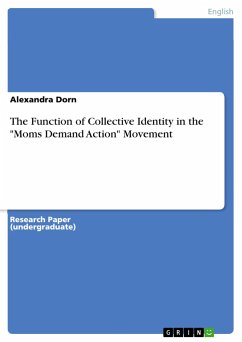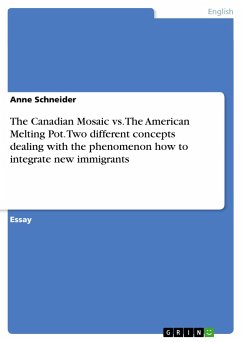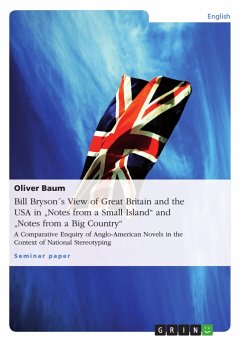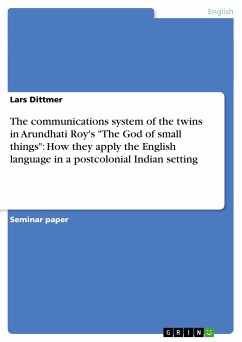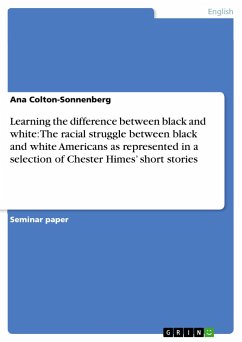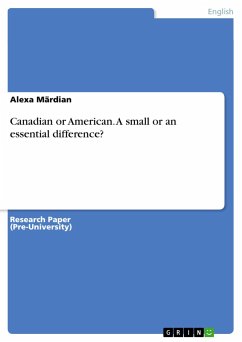
Canadian or American. A small or an essential difference?
Versandkostenfrei!
Versandfertig in 1-2 Wochen
13,99 €
inkl. MwSt.

PAYBACK Punkte
0 °P sammeln!
Pre-University Paper from the year 2014 in the subject American Studies - Culture and Applied Geography, grade: 1, , language: English, abstract: Canadian or American - A small or an essential difference? The question already implies that the subject of this thesis is focusing on culture and aspects of civil society rather than e.g. geographical differences.Every country differs respectively its society from another but The United States and Canada are often assumed to be one of the most similar neighbours in the world. This is not surprising, due to the fact that 90 % of Canada's population l...
Pre-University Paper from the year 2014 in the subject American Studies - Culture and Applied Geography, grade: 1, , language: English, abstract: Canadian or American - A small or an essential difference? The question already implies that the subject of this thesis is focusing on culture and aspects of civil society rather than e.g. geographical differences.Every country differs respectively its society from another but The United States and Canada are often assumed to be one of the most similar neighbours in the world. This is not surprising, due to the fact that 90 % of Canada's population lives within 120 kilometres of the US border. So, is national identity really a matter of distance? As the years go by this lively-discussed issue has induced many sociologists and psychologists to research but a general consensus has never been found.Canadians usually feel offended when they are named Americans and over the centuries Canada has tried to stress its unique identity and culture. Unfortunately, this phenomenon is often associated with the terms of "Canadian Nationalism" and "Anti-Americanism", or simply as Dr. Mark Snyder defines it as "identity by negation rather than affirmation".But contrastingly and according to the "American Myths Survey", a co-operation between the Innovative Research Group and The Dominion Institute, de facto just 24% of the Canadians and 17% of the Americans feel that their values are becoming more similar. Moreover, 27% of the Canadians and 20% of the Americans actually feel that their particular values are becoming "increasingly different".In order to analyze similarities and differences between the American and the Canadian civil society it is important to define culture at first. Culture, stated by Geert Hofstede, "[...] is the collective programming of the mind distinguishing the members of one group from another." This thesis is focusing on some main aspects influencing and coining society and culture, such as norms, valuesand history. Out of these aspects I selected categories which allow a basic functional differentiation of society.





